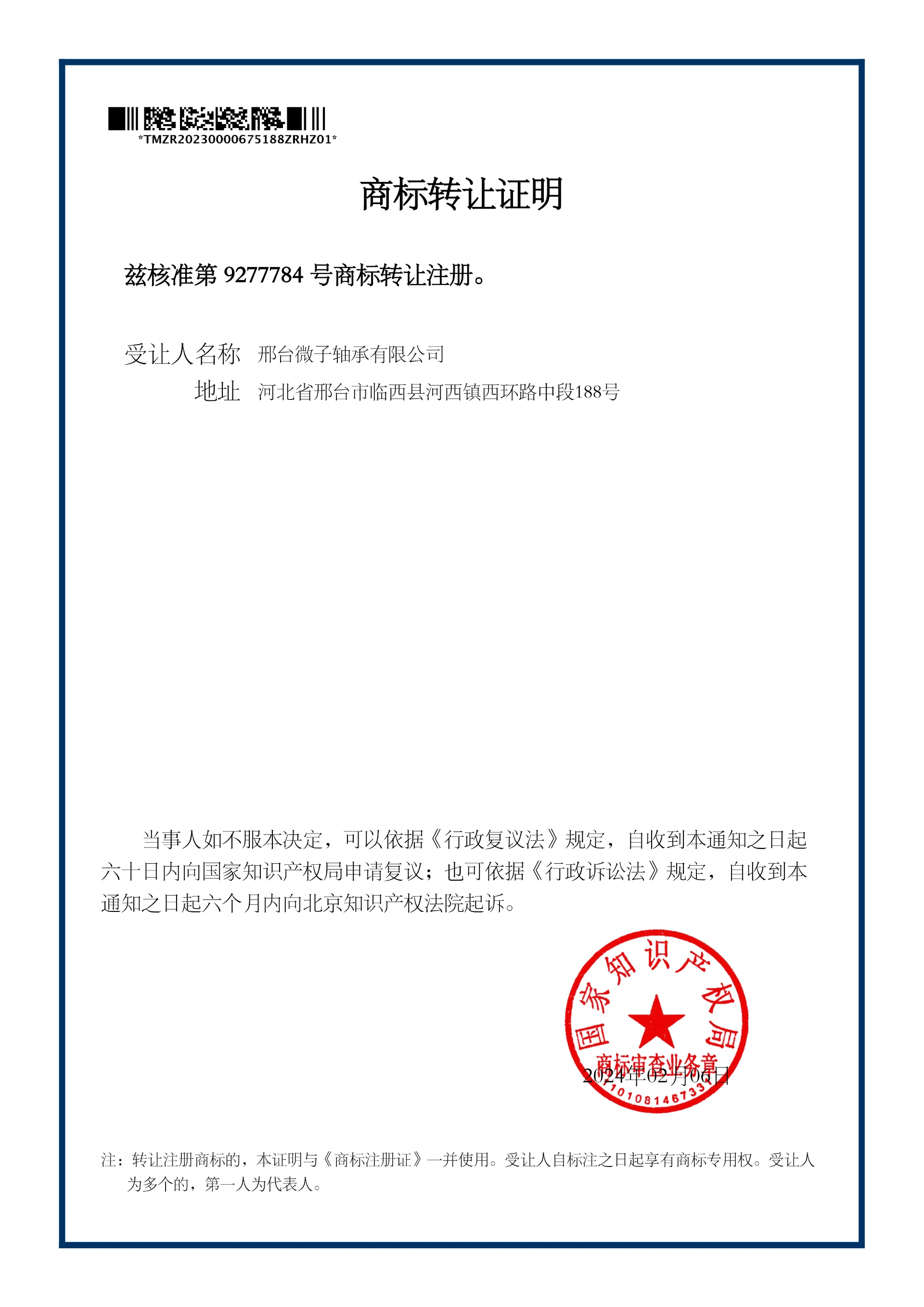
Nov . 06, 2024 10:19 Back to list
Exploring the Characteristics and Applications of 51203 Bearing in Mechanical Systems
Understanding the Importance of 51203 Bearing in Mechanical Applications
Bearings are essential components in a myriad of mechanical systems, serving as a means of reducing friction between moving parts. Among the various types of bearings, the 51203 bearing stands out due to its unique design and functionality, which cater to specific applications in both industrial and automotive sectors. This article aims to delve into the features, benefits, and applications of the 51203 bearing.
What is a 51203 Bearing?
The 51203 bearing is a type of thrust ball bearing that accommodates axial loads and limits radial loads. Typically composed of a ball set, inner and outer races, and accompanying wear-resistant materials, this bearing is capable of supporting high axial loads. The basic design consists of two hard steel rings, one being fixed to the shaft and the other to the housing, with a ball or balls between them. This configuration allows the bearing to efficiently transmit force along the axial direction while minimizing wear and friction.
Key Features
1. Load Capacity The 51203 bearing is engineered to handle substantial axial loads, making it ideal for applications where axial forces are prevalent. 2. Low Friction Incorporating high-quality materials and an optimized design, the 51203 bearing provides low friction levels, enhancing overall efficiency and reducing energy consumption.
3. Compact Design The relatively simple structure of the 51203 bearing contributes to its compactness, allowing for easy integration into smaller spaces without compromising performance.
4. Durability With materials designed to withstand significant wear and corrosion, the 51203 bearing exhibits impressive durability, extending its operational lifespan, which reduces the frequency of replacements and maintenance.
5. Versatile Compatibility The 51203 bearing is compatible with various shaft sizes and configurations, rendering it adaptable for different industries and applications.
Benefits of Using 51203 Bearings
Adopting 51203 bearings in mechanical systems offers several advantages. Firstly, their ability to handle high axial loads makes them suitable for diverse applications, from automotive to industrial machinery. This versatility can streamline inventory for manufacturers and suppliers, simplifying the maintenance and fabrication processes.
51203 bearing

Moreover, the reduced frictional force translates to lower operating temperatures, which can help prevent heat-related degradation of the machine components. This result not only enhances the efficiency of the operation but also increases the safety and reliability of the entire system.
Additionally, the longevity of the 51203 bearing implies reduced costs associated with repairs or replacements, providing long-term financial benefits. Businesses can improve their operational efficacy, leading to more significant profitability over time.
Applications of 51203 Bearings
1. Automotive Industry In this sector, 51203 bearings are often utilized in clutches, transmissions, and other components that experience substantial axial loads.
2. Agricultural Machinery The robust design of the 51203 bearing allows it to thrive in the rigorous environments of agricultural equipment, supporting components that undergo continuous axial forces.
3. Material Handling Equipment Conveyors and hoists often rely on the stability provided by 51203 bearings to manage heavy loads without failure.
4. Pumps and Compressors The thrust characteristics of 51203 bearings make them ideal for use in various pumps, particularly where axial loads are prominent.
5. Mining and Construction Equipment Given the harsh conditions in which mining and construction activities are conducted, 51203 bearings offer reliability and durability critical for heavy machinery.
Conclusion
In summary, the 51203 bearing represents a critical component in various mechanical and industrial applications due to its superior load-handling capabilities, low-friction performance, and durability. As industries continue to evolve and demand more efficient and reliable components, bearings like the 51203 stand at the forefront, proving essential for ensuring optimal performance and longevity in mechanical systems. For engineers and designers, understanding the nuances of such bearings is crucial in creating robust and efficient machinery capable of meeting the rigorous demands of modern applications. Ultimately, investing in the right bearings can make a significant difference in operational efficiency and overall mechanical performance.
Latest news
-
Grooved Ball Bearing Design and Functionality
NewsJun.04,2025
-
Concrete Mixer Bearing Load Capacity Testing
NewsJun.04,2025
-
6004 Bearing Dimensions in Robotic Joint Designs
NewsJun.04,2025
-
Advantages of Single-Row Deep Groove Ball Bearings
NewsJun.04,2025
-
Applications of Deep Groove Ball Bearings in Automotive Systems
NewsJun.04,2025
-
Innovations in Bearing Pressing Machine Design
NewsJun.04,2025
